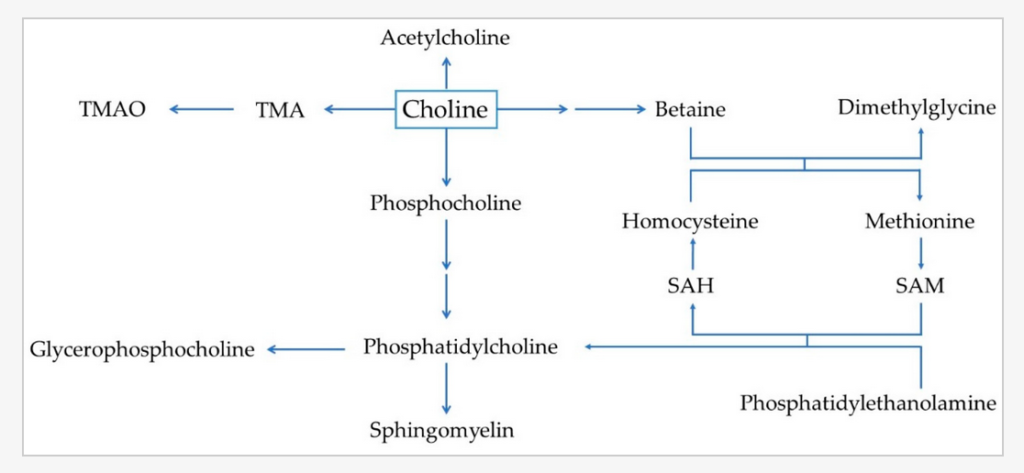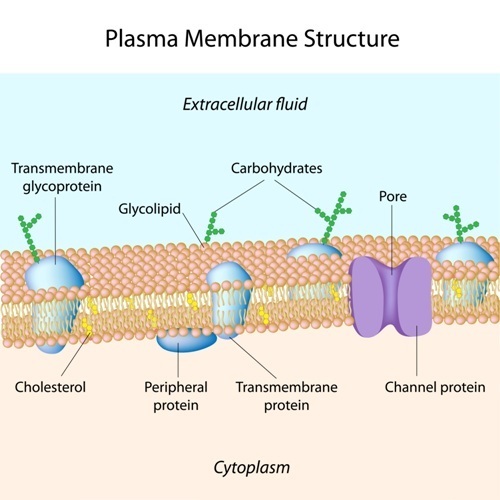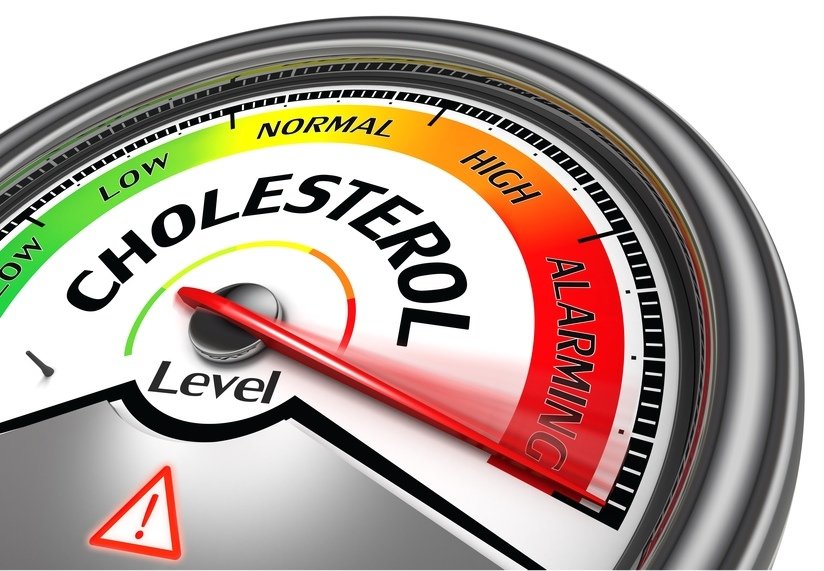What's On This Page?
ToggleToday’s article is about phosphatidylcholine, it’s something that might be useful for you, especially if you’re tired. Read on to see the benefits and possibilities of taking supplements of this supplement.
Fatigue is a challenging issue for people, and it’s hard to test for a root cause beyond standard adrenal and thyroid function tests. Sometimes a third etiology is considered and that would be B-vitamin status. All these issues can definitely lead to, or contribute to chronic fatigue. But no one typically checks for choline or phosphatidylcholine levels.
The term “phosphatidylcholine” is sometimes confused with “lecithin,” but they’re slightly different. Choline is a component of phosphatidylcholine, which is a component of lecithin.
Choline is a naturally occurring B vitamin required to make a memory and energy molecule called acetylcholine (ACh). It has been theorized that abnormally low levels of ACh in the brain lead to memory loss (and mania in patients predisposed to bipolar).
But persistent fatigue could be low levels of a fatty substance called phosphatidylcholine, which is made from choline (assuming your genes do not have an expressive SNP). I’ll get to that later. This is a complicated article, but I am trying to help those of you who are tired and still trying to figure out why.
Choline and phosphatidylcholine supplements hold promise for the purpose of repairing the damaged cell (plasma) membranes, which would then increase energy. It would take about 2 months though. Let me back up and brief you so you can fully understand how this all could work for you.
PEMT is an abbreviation for PhosphatidylEthanolamine N–MethylTransferase
(I’ve made the letters stand out for you by bolding and capitalizing them, but in the scientific literature, every letter would be lower case.)
The PEMT gene is not the only gene involved in choline metabolism. But I wanted to mention it to you because that’s the gene that your liver uses to convert phosphatidylethanolamine all the way to phosphatidylcholine. Your body is creating PC from choline in your liver using the PEMT gene which generates the enzyme by the same name.
A SNP (polymorphism) in this area could slow that down and then your cell membranes and your energy pay the price. It could go under the radar for years and years, while you’re diagnosed with chronic fatigue, dementia or mistakenly diagnosed with Lyme or other harder/incorrect conditions.
Phosphatidylcholine is sometimes preferred to plain choline in case the PEMT gene is not up to snuff. Also, people sometimes have trouble getting a bulky molecule like choline past the blood-brain barrier, where it can form PC. So taking PC is more of a direct route.
I’ve attached a graphic that I pulled from MDPI Open Access Journals so you can see the different names in the pathway and see why I use some of them interchangeably. A few molecules can go back and forth in the pathway too.

Phosphatidylcholine (PC) is a component of lecithin, it is not the same as lecithin though and yet I see the terms used interchangeably. Please see the graphic above, sometimes the molecules go back and forth between themselves.
It’s Used in Cosmetic Procedures!
Again, PC isn to lecithin, but rather a component of lecithin. Many plastic surgeons know of phosphatidylcholine-based fat dissolvers. In the cosmetic industry, this is called “injection lipolysis” and it’s a procedure that reduces fat by using a series of injectable medications that are based in phosphatidylcholine.
Some include laser light. The goal is to reduce fat in specific spots in your body, for example, your chin. This is not a specialty of mine, but I can name a few types of products/procedures if you’re interested in researching later: Lipodissolve, Lipolight, Lipolyse and Lipotherapy.
By “dissolve fat” I mean it could work a bit like your dish soap does. You know how you put that pan in the sink that has globules of fat from the ground beef you just browned? You know how you can run the sponge around it over and over and it just makes the pan more greasy and fat? And then you add some dish soap to the pan and swish that around with the sponge and suddenly all the fat and grease comes off the pan, and you have a clean pan.
It’s kind of like that.
You put the PC in and it breaks down fat like a detergent would. This is why it’s so popular in the cosmetic industry, but we’re not talking about injections of PC today, we’re talking about the oral kind, specifically the type you can buy online or at a health food store. It’s useful for a few other things.
Lecithin is a fat that is needed for the human body, it’s naturally found in your tissues. It’s naturally found in high amounts in the brain, kidney and liver. It can be extracted and turned into a supplement from a number of different sources including egg yolks, soybeans, mustard, corn and sunflower seeds.
It’s commonly used as a food additive to make fats suspend in oils, as an emulsifier. For example, lecithin is commonly found in our foods like ice cream and salad dressing, as well as mayonnaise. In mayonnaise, the emulsifier on the ingredient list is listed as “egg yolk,” but again, egg yolk serves as the fat emulsifier because it contains lecithin.
Most lecithin supplements are derived from soybeans, however soy is commonly genetically modified, so there are a few makers of sunflower-derived lecithin. Lecithin and phosphatidylcholine can both be purchased as dietary supplements, from nonGMO sunflowers.
These supplements help people with all sorts of concerns according to well-designed studies. Here are a few areas of health where PC (or lecithin) can help you:
1. Cholesterol Ratios
Lecithin and phosphatidylcholine are thought to help normalize ratios of fats in the bloodstream. Studies point to its ability to raise HDLs and lower LDL cholesterol, thus improving your ratios.
I think this type of supplement could be taken along with your statin medication with no foreseeable problems, but of course, it’s great to ask your doctor about all dietary supplements.

2. Hypertension
The high choline content is what your cells need to communicate better. Choline helps lube the outer plasma (cell) membrane which allows for better neurotransmission and synaptic communication. By improving functional pathways, the signals that say “vasodilate these blood vessels” seem to get transferred faster and/or more effectively so this supports blood pressure numbers.
3. Forgetfulness and Memory Problems
PC used in the body to create more acetylcholine, which is known as a memory molecule. Low levels of acetylcholine are associated with Alzheimer’s disease. Your brain is made of fat and fatty tissue craves choline-based supplements, like lecithin or phosphatidylcholine.
Since there’s faster more effective communication between the brain cells, a sharper memory could be one expected benefit. Studies suggest that a diet rich in choline can help people with dementia and memory loss.
4. Anxiety or Bipolar
There’s a lot of interest right now to see if other cognitive or emotional disorders will respond to PC, and I’d say it looks promising. We already know there’s limited studies (but still … it’s evidence!) for PC’s use in tardive dyskinesia and bipolar.
Lower brain levels of acetylcholine are implicated in some cases of mania. One study suggested about 15 to 30 gm per day to help reduce the frequency and/or severity of mania episodes and depression. CAUTION: Before attempting self treatment with this condition, and any over-the-counter remedy, you must speak to your psychiatrist or medical doctor.
But my point is that there are some good case reports, trials and even a small double-blind study to suggest that phosphatidylcholine may help manage mood swings and what was interesting is that the symptoms recurred with more vigor when the PC was discontinued.
5. Intestinal Problems
Phosphatidylcholine might also help to protect the wall of the large intestine and colonic mucus in people with a condition known as ulcerative colitis. Could it help any of us, even if we do not have this problem. There is some interest in using phosphatidylcholine to improve symptoms of ulcerative colitis in some people. Some scientific research supports this use.

6. Fatigue
There was a randomized, double-blind, placebo-controlled STUDY published in the Nutritional Journal.
The researchers set out to evaluate where supplements of soy lecithin would help middle-aged women with their fatigue.
The study included 96 women who ranged in age from 40 to 60 years old, who had complained of fatigue. They should have asked me I would have gladly obliged because I’ve been tired for like 25 years now, lol! It’s my one and only symptom and since I can coffee up, and cure it, I don’t think too much about it.
Anyway, the women were grouped into three different categories:
1. Group one (32 women) received active tablets 1,200mg/day
2. Group two (32 women) received active tablets 600mg/day
3. Group 3 (32 women) received placebo dud pills.
After 2 months, the researchers evaluated the women. Keep in mind they logged in a lot of different details, such as their age, lifestyle factors, cardiovascular parameters, psychological symptoms, and of course physical symptoms. All the women in this trial were post-menopausal.
As for fatigue, they didn’t put these ladies on a treadmill or make them do anything physical, however, they did evaluate them through three different respectable questionnaires.
The results were really no surprise. Both of the groups receiving the lecithin did better after supplement treatment than at the onset of the study. The group receiving the high dose (1200mg/day) faired out best and the study concluded with, “High-dose (1200 mg/day) soy lecithin not only increases vigor, but also lowers the diastolic blood pressure and cardio-ankle vascular index in middle-aged women who present with fatigue.”
I would have been interested to know which of the women had a PEMT polymorphism, however this was not one of their study parameters. The interesting thing is that fatigue is one classic symptom of hypothyroidism, whether or not that is diagnosed. And if the fatigue is due to a thyroid condition, the plot thickens. There is actually a pretty interesting connection between a PEMT polymorphism, with phosphatidylcholine, and hypothyroidism.
As you already learned from this blog, the PEMT gene is responsible for an enzyme that converts phosphatidylethanolamine to phosphatidylcholine (PC) in your liver. And PC is a major component of cell membranes and is crucial for proper lipid transport and liver health.

The liver plays a significant role in regulating your thyroid hormones, including the conversion of thyroxine (T4) into its more active form, triiodothyronine (T3).
If you have poor liver function, you’ll have poor activation of T3. Phosphatidylcholine supports healthy fat metabolism and prevents the accumulation of lipids in the liver (steatosis), which can impair liver function. So in a way, PC contributes to better activation of T3.
Who Needs More Phosphatidylcholine?
Obviously, an essential B vitamin related nutrient could help anyone due to the fact that it is needed for structural integrity, neurotransmitter synthesis, signaling, and methylation.
But in my opinion, there are 3 main categories of people who need more choline than the average person. (Perhaps four categories if you add people with digestive concerns). But the 3 main categories of folks that I think could benefit are as follows:
1. Pregnant Moms
If you’re pregnant, or want to become pregnant soon, your diet should be very rich in choline because it is critical for your developing baby. You may want to read this article next, 2 Essential Nutrients You Need Before Pregnancy.
There’s more in this STUDY which discusses neural tube defects, methylation and folic acid.
The risk for neural tube defects (usually associated with low folate but maybe that’s old news) is shockingly FOUR TIMES HIGHER if you’re choline deficient during pregnancy! So your baby needs you to either eat the foods that are rich in this nutrient or supplement appropriately.
Not excessively. Ask your OB/GYN what to do, because I can’t advise. I just want you to know that a growing baby has a bazillion cells growing rather quickly (it’a a miracle!) and all of these cells have a cell membrane, and so they are highly dependent on choline.
If you’ve had a baby, and you have post-partum depression please read, 8 Excellent Tips for Postpartum Depression and Recovery.
2. Those with PEMT polymorphisms.
People who have a common genetic polymorphism or SNP (pronounced “snip”) might need additional choline. There are many genetic polymorphisms which cause individuals to not produce sufficient phosphatidylcholine.
Having a PEMT or any other polymorphism (SNP) doesn’t mean it’s expressing itself (active) so don’t assume that you need a dietary supplement for a homozygous SNP. However, if you have the active SNP, it might cause you to feel tired and short of breath, and have a memory issue, especially short term.
There may also be minor digestive symptoms. If you have all this, it’s possible you could benefit from a little PC. Like many supplements, you have cell turnover, and over time, you have tissue turnover, so don’t expect results with supplements the first month. In fact, it takes 2 and sometimes 3 months of daily supplementation to really improve energy.

Remember that choline is an essential nutrient, you can get by without adequate amounts, but you won’t feel well, and you’re probably going to have a sluggish liver, fatigue, high triglycerides and possibly more muscle aches and strains. That’s because choline provides critical structural integrity and helps support healthy cell membranes. It helps with methylation. It allows for the proper methylation of homocysteine (which breaks down that harmful chemical) the methyl group comes from the choline.
3. Bad Cholesterol.
It’s mostly about your triglycerides, not your HDL or LDL levels. Many of you have very high triglycerides and nothing seems to help that come down, not even fish oil or medication. This could very well be due to a lack of PC. Sufficient amounts of phosphatidylcholine (PC) have been shown to preferentially shuttle the triglycerides into the fatty cells and tissues of your body, versus blood. If you want more detail, you can read this STUDY.
There are several interesting articles that support PC’s ability to help with cholesterol, specifically triglycerides.
For example, there was a STUDY entitled, “Common genetic polymorphisms affect the human requirement for the nutrient choline.”
The study consisted of 57 people who were given a choline-deficient diet for about 42 days, right up until they developed some type of organ dysfunction! The participants who had a PEMT SNP (rs12325817) had a 78% chance of developing organ dysfunction when fed a low choline diet.
Also those with a CHDH variant (rs12676) were most susceptible. Those with BHMT (rs3733890) were not associated with susceptibility to choline deficiency. You can click on this LINK if you want more information about the specific alleles and variants.
4. Those with hypothyroidism
If you’re a person with fatigue and a thyroid condition, it’s quite possible you should supplement with PC. I’d say that individuals with certain PEMT gene SNPs (whether they know it or not) simply have reduced efficiency in producing phosphatidylcholine. This reduced capacity will lead to compromised liver function, likely affecting the liver’s ability to process and regulate thyroid hormones. And that’s what will make you tired. In this case, taking PC even if you take thyroid medication would be a brilliant idea! You may be interested in my Thyroid Script supplement (although it does NOT contain any PC – it has other cofactors to support T3 thyroid activation.* If thyroid issues are something you deal with, feel free to reat my other article, 5 Signs of Thyroid Imbalance and How to Address Them Naturally.

Suzy Cohen, has been a licensed pharmacist for over 30 years and believes the best approach to chronic illness is a combination of natural medicine and conventional. She founded her own dietary supplement company specializing in custom-formulas, some of which have patents. With a special focus on functional medicine, thyroid health and drug nutrient depletion, Suzy is the author of several related books including Thyroid Healthy, Drug Muggers, Diabetes Without Drugs, and a nationally syndicated column.



